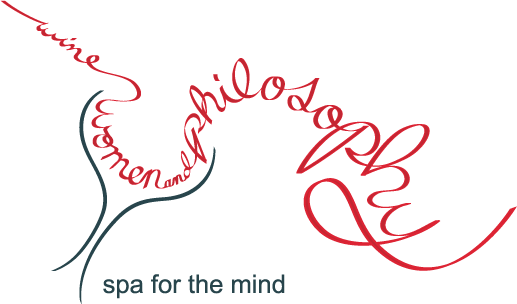
The wwp Philosophy Club got off to a great start yesterday evening as our group of 9 came together for our first session of six, and we began our exploration of the trope of the "Invisible Matron." Our first task was to set up some guiding beacons for our forthcoming adventure together - some threads, if you like, that weave in and out of the entire series, and which offer us something to hang on to and if need be, return to, as we embark on this experimental and experiential philosophical journey. We established a fitting approach to our research and study -
Feminist Standpoint Epistemology - which, grounded as it is in an active acknowledgment and embracing of the different material conditions and lived experiences that each of us brings to the table, creates an atmosphere of generosity and openness. This kind of ambiance enables us to disagree in a spirit of understanding. It also encourages us to take up a standpoint or position with a certain degree of confidence, knowing that where we come from and what has shaped us are valid criteria for taking a stance and venturing an opinion.
Of course, it is equally important to find a voice with which to speak our thoughts and ideas. Our second ongoing thread is the very issue of the
female voice as it pertains to our journey from childhood to old age in a world that has often shut down or distorted what we have to say and how we say it. Drawing on Carol Gilligan, we discussed the "different voices" that, as women, we have called forth at different stages of our life, as well as those voices that we have suppressed for the sake of creating peaceful relationships with others, or for fear of being rejected or of not being heard. Acknowledging that such fears might be lessening at a time when, as midlife women, we are also becoming somewhat invisible to the larger society, we embraced the irony of possibly finding more freedom in
not being seen or heard, and decided to use this series as a place to experiment from the vantage point of this new positioning, as well as to seek out our "natural voice" within it.
In fact, this kind of tenuous betwixt-and-between space that many of us are finding ourselves in at this stage of our life provided us with the third guiding thread for the series: the concept of
liminality, and what it means to be a woman on the threshold - or
limen - of something new, something uncertain, but something that - for its very intangible allure - makes a return to the past seem out of the question.
Key to the whole Philosophy Club venture is that we are not so much re-hashing old philosophical ideas as creating new knowledges out of actively doing philosophy in a group context. Our plan, then, is to look at the Invisible Matron from a number of different angles, and to assume each week a different standpoint from which to observe her. Assigned readings help to shed light on the Invisible Matron in her various forms and guises, and each weekly two-hour session involves small lectures, group exercises, and lively discussion. Yesterday evening's angle on the Invisible Matron was that of Mother, and we took the standpoint of daughters. In preparation for the session, we had all read Ruth Reichl'
s moving and insightful tribute to her mother,
Not Becoming my Mother: & other things she taught me along the way. Breaking into small groups, we explored the various voices that we hear while reading the book, as well as our own voice as it engaged both with Mim's passage from obedience to rebellion to despair and finally, independence and happiness, and with Ruth's attempt to get to know her mother after her death, through the letters and diaries that Mim left behind.
To cap off the evening an exercise involving old photographs, the relationship between mothers and daughters, and the use of voice and standpoint provoked much hilarity as well as led to some deep insight. It galvanized the group and set a wonderful tone for next week's look at The Invisible Matron as spectacle.
 The theme of this one is "The Invisible Matron" and it being co-hosted by the participants of our first ever Philosophy Club series, which has been working this theme over the past month or so. We are looking forward to sharing with you the fruits of our collaborative thinking and individual research projects exploring women's lives and what it means to grow older in our society. And we are keen to build on what we have learned through hearing from you about your own experience of aging and with it, increased or decreased visibility in the wider world.
The theme of this one is "The Invisible Matron" and it being co-hosted by the participants of our first ever Philosophy Club series, which has been working this theme over the past month or so. We are looking forward to sharing with you the fruits of our collaborative thinking and individual research projects exploring women's lives and what it means to grow older in our society. And we are keen to build on what we have learned through hearing from you about your own experience of aging and with it, increased or decreased visibility in the wider world.


